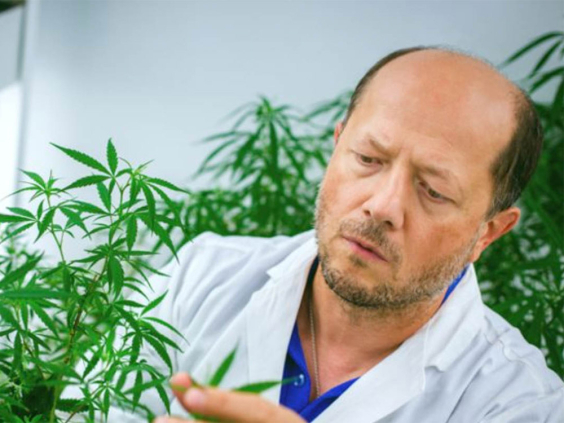
Cannabis extracts (CBD) are showing potential in making people more resistant to the novel coronavirus (COVID-19), says an Alberta researcher leading a study.
After sifting through 400 cannabis strains, researchers at the University of Lethbridge are concentrating on about a dozen that show promising results. In ensuring less fertile ground for the potentially lethal virus to take root, said biological scientist Dr. Igor Kovalchuk.
“A number of them have reduced the number of these (virus) receptors by 73 percent, the chance of it getting in is much lower,” said Kovalchuk.
“If they can reduce the number of receptors, there’s much less chance of getting infected.”
Employing cannabis Sativa strains over the past three months, the researcher said the effective balance between cannabis components THC and CBD — the latter more typically associated with medical use — is still unclear in blocking the novel coronavirus.
“It will take a long time to find what the active ingredient is — there may be many,” said Kovalchuk. Kovalchuk Pathway RX is owned partly by Olds-based licensed cannabis producer Sundial Growers and partnered with Alberta cannabis researcher Swysh.
But it’s generally the anti-inflammatory properties of high-CBD content that have shown the most promise, he added.
“We focus more on the higher CBD because people can take higher doses and not be impaired,” said Kovalchuk.
Absence of Clinical Trials Remains a Barrier
The absence of clinical trials remains a barrier. Funding from an increasingly cash-strapped cannabis industry isn’t there to fuel that, said Kovalchuk.
“We have clinicians who are willing to work with us but for a lot of companies in the cannabis business, it’s significant cash that they can’t afford,” he said.
The scientist emphasized the findings wouldn’t lead to a vaccine — something “less specific and precise” but nonetheless another possible weapon against COVID-19.
“The extracts of our most successful and novel high CBD Sativa lines, pending further investigation, may become a useful and safe addition to the treatment of COVID-19 as an adjunct therapy,” said Kovalchuk.
“Given the current dire and rapidly evolving epidemiological situation, every possible therapeutic opportunity and avenue must be considered.”
Health Canada License
The study under Health Canada license using artificial human 3-D tissue models has been seeking ways to hinder the highly contagious novel coronavirus from finding a host in the lungs, intestines, and oral cavity.
If successful, the work could find practical medical use in the form of mouthwash, gargle, inhalants, or gel caps, said Kovalchuk.
“It would be cheaper for people and have a lot fewer side-effects,” he said.
Israeli Research
Israeli researchers have begun clinical trials of CBD as a treatment to repair cells damaged by COVID-19. By using its anti-inflammatory abilities.
It’s thought CBD could enhance the traditional effect of steroids in such treatment of patients in life-threatening conditions. It could also bolster the immune system.
Research Deserves Government Support
It’s the kind of research and his own that deserves government support in Canada. Canada’s federal government has pledged $1.1 billion in funding for COVID-19 research said the University of Lethbridge scientist.
“Our work could have a huge influence — there aren’t many drugs that have the potential of reducing infection by 70 to 80 percent,” he said.
